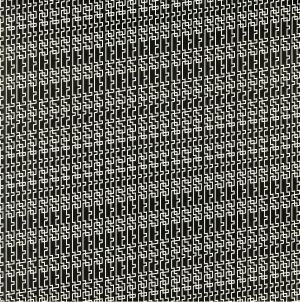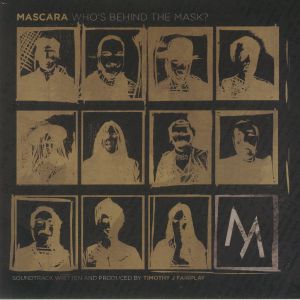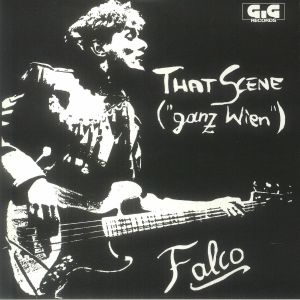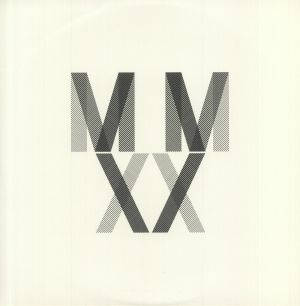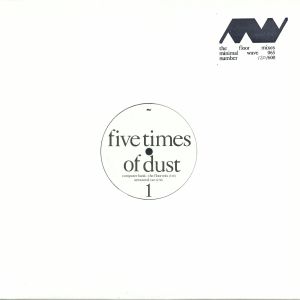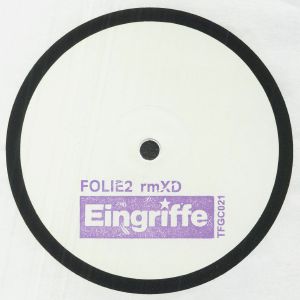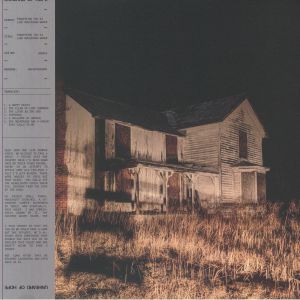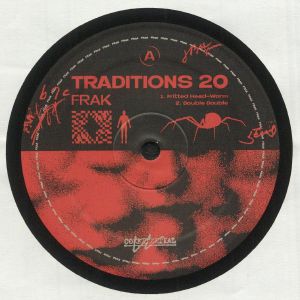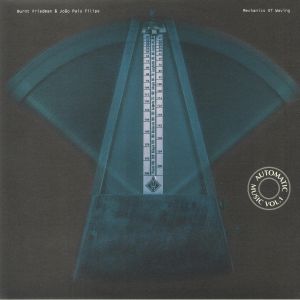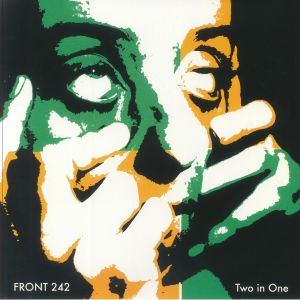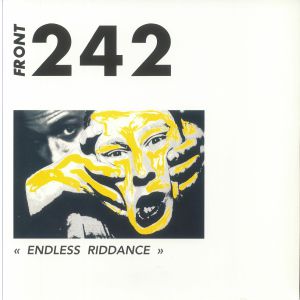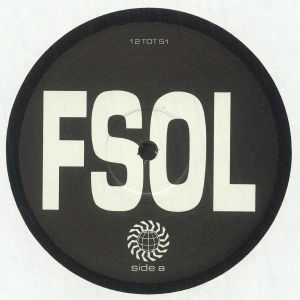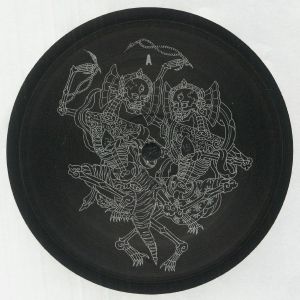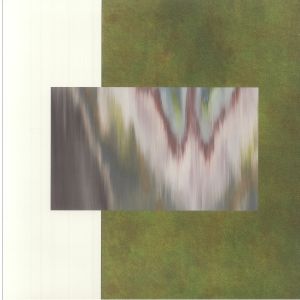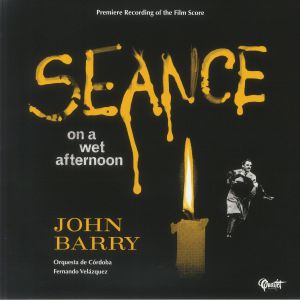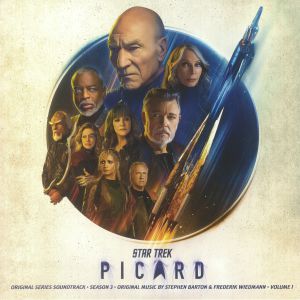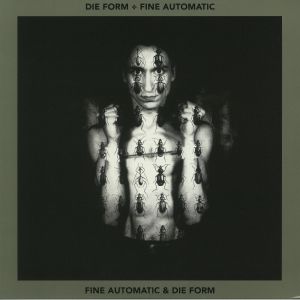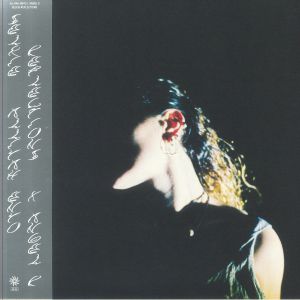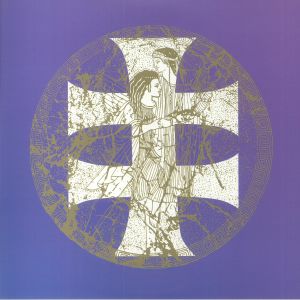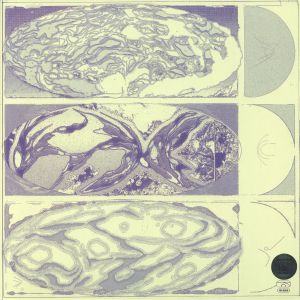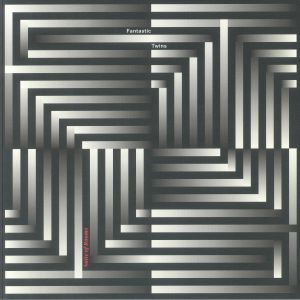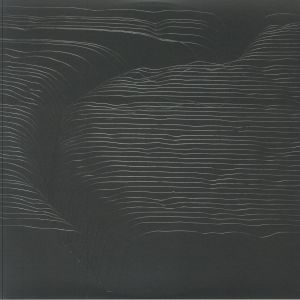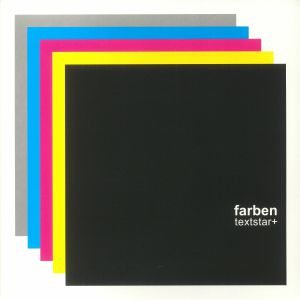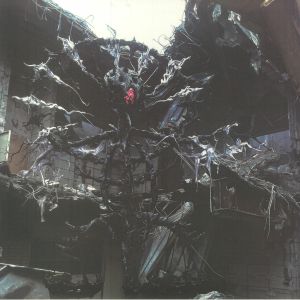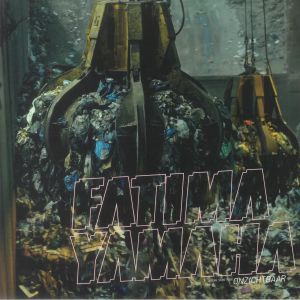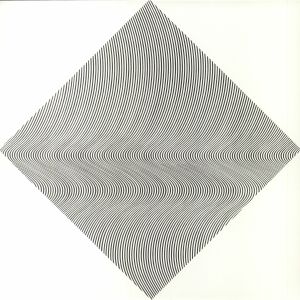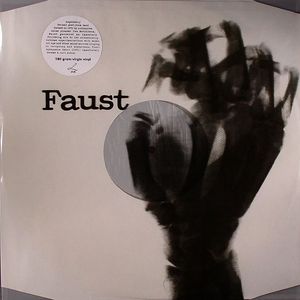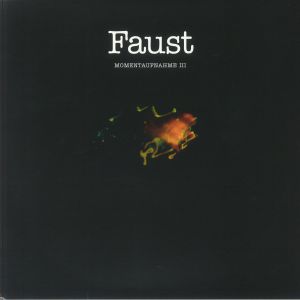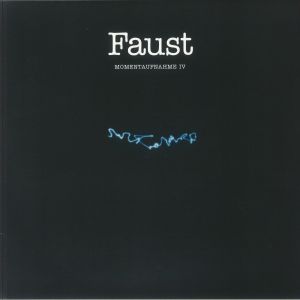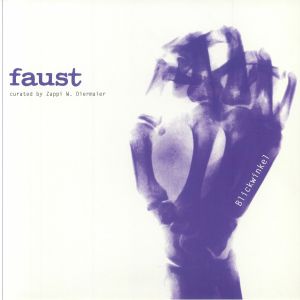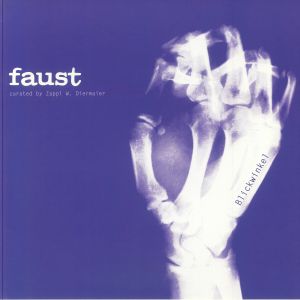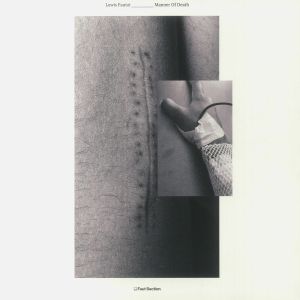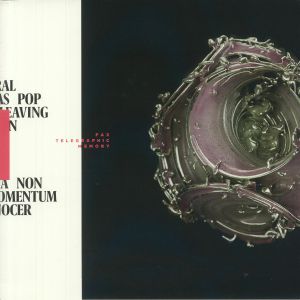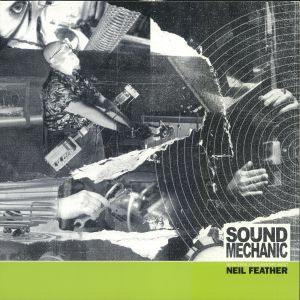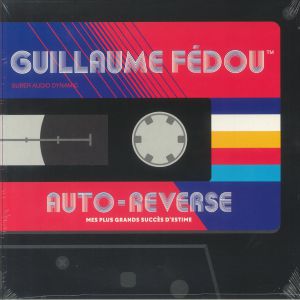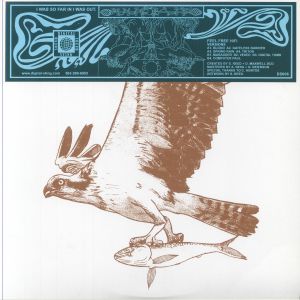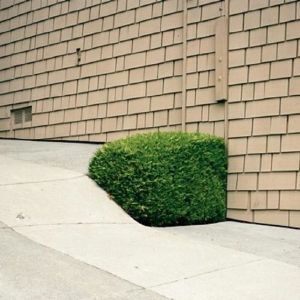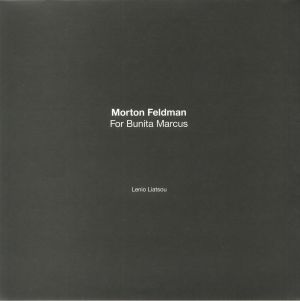Filter
Genre
Type
Release Date
Label
Featured
Release Title
Price
Tags
Back catalogue: Leftfield
Juno's full catalogue of Leftfield
Singles
Tracks Volume 3 (limited red vinyl 12")
Cat: CITI 024. Rel: 08 May 18
Review: BOOM! Our favourites, Cititrax, roll the third editions of Tracks out onto our shelves, and the results are unsurprisingly strong on this excellent various artists comp. It's a mixed bag of skills, as per usual, and the sounds are those of a new NYC, fuelled by a new sort of post-industrial sensibility. Amato Y Mariana open with the tight beats and groove of "Queires Bailar", followed closely by the ominous compositions of the EBM-flavoured "Montgat" from The Sixteen Steps. On the flip, His Dirty Secrets bleeps out some morphed acid on "Structures", and "Another Stranger" from Further Reductions churns out a slow, mild-mannered house experiment with its roots clearly planted in the coldest of waves. Sick.
… Read moreGespielt von: Juno Recommends Techno
in stock $24.89
in stock $35.12
That Scene (Ganz Wien) (Record Store Day RSD 2023) (limited 7")
Cat: 196587 43787. Rel: 25 May 23
in stock $20.74
MMXX 20: Nebula (limited 1-sided etched clear vinyl 12")
Cat: MMXX 20. Rel: 16 Jun 21
in stock $28.20
The Floor Mixes (limited hand-numbered blue vinyl 12" in hand-stamped sleeve)
Cat: MW 065. Rel: 19 Dec 17
Review: Thanks to the eternally revered Minimal Wave imprint, out of NYC, Mark Phillips and Robert Lawrence's Five Times Of Dust project is going through a bit of a revival. The duo had first released some post-punk cassettes back in the 80s, and they clearly have not been forgotten. On this new remix EP, "Computer Bank" is given a makeover in the form of a The Floor remix, who proceeds to add all sorts of quirkiness over the tune's tough, heavy bass and driving rhythm; "Armoured Car" breaks the 4/4 in favour of something much closer to the band's original drum machine style. Once again, on the flip, we have a remix of "Like I Am, Comme Je Suis" by The Floor, who throws up a gnarly electro bass onto shady, neo-romantic vocals, and the whole things is finished off by "Imponative" from Unovodual and Tara Cross, who produce a slow, heady industrial groove for the dancefloor.
… Read moreGespielt von: Alexis Le-Tan, Dj soFa
in stock $21.57
Gespielt von: Wil Maddams, Tommy Finger Jr.
in stock $22.11
Review: Dusseldorf-based trio Folie 2 return on Themes For Great Cities to follow up their debut long-player from earlier this year. Eingriffe features yet more genre bending experimental pop by Gregor Darman, Marlene Kollender and Sebastian Welicki. Local legend Tolouse Low Trax kicks things off with his Scissor Jazz Hat mix of 'Fullness Of My Heart' before they get stuck into some low-slung cosmic funk on 'Disco' (TBZ Weired Disco) and on side B there's the neon-lit night moves of deep cut 'Universal Sucker'.
… Read more in stock $20.47
Forgetting You Is Like Breathing Water (12" with obi strip)
Cat: UOH 014LP. Rel: 23 Oct 24
in stock $25.72
Gespielt von: Juno Recommends Electro
in stock $26.53
Cat: NONPLACE 053. Rel: 05 Jul 22
Review: Burnt Friedman and Joao Pais Filipe's collaborative efforts began back in 2018. The former using synthesis and electronics to paint subtly but incredibly specific aural pictures, the latter focusing on the drum and rhythmic end of things. At times their music feels entirely designed for the dancefloors of underground electronic clubs, in other moments it's something very different indeed.
This latest EP lives up to those broad brushstrokes. '21-30' is a lush, almost tropical sounding workout that offers a complex percussive pattern, and combines these with gentle shades of melody, harmony, hook and distorted note. '22-105' brings elements of glitchiness and robotics into the mix. Meanwhile, '18-140' would work well as a brooding building tool (or section) of a 'proper techno' mix, with '23-130' bridging gaps between the lot.
… Read moreThis latest EP lives up to those broad brushstrokes. '21-30' is a lush, almost tropical sounding workout that offers a complex percussive pattern, and combines these with gentle shades of melody, harmony, hook and distorted note. '22-105' brings elements of glitchiness and robotics into the mix. Meanwhile, '18-140' would work well as a brooding building tool (or section) of a 'proper techno' mix, with '23-130' bridging gaps between the lot.
in stock $20.47
Gespielt von: Wes Baggaley
in stock $29.04
Endless Riddance (heavyweight milky clear vinyl 12")
Cat: AMLP 1422. Rel: 07 Jun 24
Review: Front 242's re-release of their timeless classics on crystal clear vinyl is a true gift to electronic music aficionados. Originally unleashed in 1983, the Endless Riddance EP, following their debut album Geography, remains a pivotal moment in the genre's history. This release served as the bedrock for the group's influential sound, shaping industrial and EBM music for decades to come. Front 242's dedication to their craft and relentless innovation is evident in their ongoing influence on electronic music. As they embark on their final tour in 2024, it's a fitting tribute to their enduring legacy. With their mantra, "always ahead," Front 242 continues to pave the way for future generations of electronic artists.
… Read more in stock $28.48
Review: The first of two EPs leading up to The Future Sound of London's much anticipated 2025 album only serves to build anticipated cause they're as good as you would hope. Side A is a dark ambient odyssey that drifts through ethereal choirs into ritualistic rhythms before landing in a surreal suburban dreamscape. It's immersive, haunting and unpredictably brilliant. Side B begins with a more introspective tone but gradually shifts into unease with baroque minimalism with modular synths, breakbeats and drum machines coming totters with ambient field recordings and meticulously curated samples. It's as intricate as you would expect of this pair and is a masterclass in an atmosphere full of depth and surprise.
… Read more in stock $21.85
Cat: BL 006. Rel: 30 Nov 22
Review: Los Angeles-based The Black Lodge began as an intimate gathering place and ritual organised around exploring, sharing and experimenting with diverse forms of electronic music. This is the fourth collection of cuts from various artists of The Black Lodge multiverse. The Poetic Painter M, an alias of Nation chief Traxx, opens up the A-side with the dark late night acid of 'Elusive Clarity Of 1 Mind', followed by Pablo R Ruiz from Detroit providing the spooky lo-fi/sci-fi groove 'El Rey De Amor'. Over on the flip, Michigan's Fashion Flesh serves up a harsh experimental soundscape on 'Kisses' and closes with the tunnelling industrial funk of Fauna53's 'Jam1' (Asymmetrical weirdo orchestra edit).
… Read moreGespielt von: ISOUL8 (Volcov)
in stock $27.38
Alben
Visioni Fuggitive (gatefold LP + insert)
Cat: NSP 05. Rel: 03 Dec 24
in stock $39.80
The Wind That Had Not Touched Land (LP + insert)
Cat: ACOLOUR 052. Rel: 30 Apr 25
in stock $23.78
Seance On A Wet Afternoon (Soundtrack) (60th Anniversary Edition) (limited audiophile LP)
Cat: QRLP 52. Rel: 13 Mar 25
in stock $31.24
Star Trek: Picard Season 3 Volume 1 (Soundtrack) (gatefold sky blue & white burst vinyl 2xLP)
Cat: LKSO 36331. Rel: 10 Aug 23
Review: Star Trek Picard is a TV series that has been as healed for its great soundtrack as much as any of the on screen action. The award winning British composer Stephen Barton (also known for his work on Star Wars Jedi Fallen) is behind it and his work on the third season might be the best yet. Pulled out of retirement once more, Jean-Luc Picard (played by the legendary Patrick Stewart) seeks help from Captain Riker to answer a distress call and uncovers a conspiracy reaching to the furthest corners of the Federation as well as the unwelcome return of an old foe. Thematic is dramatic, absorbing and emotive and is all captured on this record.
… Read more in stock $38.70
Berlin Atonal Vol 3 (gatefold 3xLP)
Cat: ATONAL 001. Rel: 26 Aug 15
Review: Berlin Atonal returned two years ago from a long hiatus, 23 years to be exact. After three tremendous festivals this decade, they now present us with their first recordings since 1984. These particular ones from the 2014 edition. Cabaret Voltaire (in this incarnation featuring only Richard H Kirk) was a true highlight and contributes "Microscopic Flesh Fragment" and "Universal Energy". One half of Demdike Stare Miles Whitaker went solo, presenting his truly unique take on techno, and the slow burning attitude of "Vagabond No. 7" is evidence of this. New Zealand's Fis also appears; rather uncategorisable as always on "Dist CL (Atonal Version)." On the third disc we have Northern Electronics main man and modern auteur Abdulla Rashim presenting two commissions from his captivating atmospheric set that year. Limited to 700 copies.
… Read moreGespielt von: Juno Recommends Techno, Kastil (Soul Notes/Stale)
in stock $40.65
Review: Landmarks remains among one of the most eminent ambient albums of our time, and this isn't the first time it's been reissued since its first release in 2018 either. Something in the way the album presents itself, and was formed and marketed - the easygoing simplicity of the artists' real names Will Long and John Daniel; the inspiratory inputs of Peter Weir and Paul Theroux; the visionary character of its track titles, such as 'The signs are everywhere', 'Indistinguishable from magic' and 'S-shaped isthmus' - have all likely lent to its enduring success. However, all these factors are but mere orbital ejecta around its core appeal, which is the soul-quelling ambient music at its center. Only occasionally peppered with the odd bosomy vocal sample - through which allusions to innovation, exploration and the dangers of inner contemplative adventure are heard - we are once again reminded of the boundless wells of beauty unearthed by the Japan resident maestro of chill and the ambient verderer, in combo.
… Read moreGespielt von: Juno Recommends Ambient/Drone
in stock $23.21
Fine Automatic & Die Form (limited numbered 2xLP)
Cat: ROTOR 43. Rel: 19 Dec 17
in stock $47.55
Les Prieres Liquides & Sacrilege Veneration Vol 5 (2 x cassette)
Cat: GRVTS 019. Rel: 07 Oct 22
in stock $25.72
Selkie Reflections (LP with obi-strip)
Cat: SP 03. Rel: 22 Aug 24
Review: Originally conceived to accompany an installation at the 2022 Edinburgh Sculpture Workshop, Selkie Reflections is very much a thing of beauty, and a work in two parts. On the A-side, you have Alliyah Enyo re-working the original tape loops used at the show into a strange, enchanting, and immersive series of hypnotic and occasionally haunting vocal calls. Flip to side B, and Florian T M Zeisig, under the alias Angel R, takes all that and turns it inside out, onto its head, and down into the depths of the selkie's world - a mythical creature capable of shapeshifting between seal and human form which features heavily in Scottish folklore. Beguiling and enchanting, prepare to be submerged in a place of beauty, bliss and mystery.
… Read more in stock $27.10
Elyria (remastered) (gatefold 2xLP)
Cat: TMCBLAK 6. Rel: 17 Mar 23
in stock $42.31
Ankoku Butoh (remastered) (180 gram red & black splattered vinyl 2xLP)
Cat: TCMLPRB 32. Rel: 12 Apr 24
The Red Crown
Kodama
She Waits By The Well
Sovereign
To Be Continued
in stock $45.07
Racines Synthetiques (limited 180 gram vinyl LP)
Cat: RPC 049. Rel: 17 Feb 22
in stock $20.47
Top Gun (Soundtrack) (B-STOCK) (gatefold 'flight suit' green marbled vinyl 2xLP limited to 200 copies)
Cat: ETR 222LITA (B-STOCK).
B-STOCK: Sleeve damaged but otherwise in excellent condition
Carrier Ready Room & Takeoffs
in stock $46.73
in stock $26.82
Review: Fan Club Orchestra originated in Brussels in the late 90s and evolved through collaborative performances across Belgium and neighbouring countries. Rooted in DIY principles, they thrived during a time when contemporary arts spaces embraced experimentalism without the constraints of funding or audience expectations. Their performances blended informality with spectacle and channelled the experimentalism of New York's 1960s downtown scene. Now regrouped, they offer up VL_Stay on 12th Isle featuring Baudoux, Ann Appermans and Ze?phyr Zijlstra.
… Read more in stock $27.38
Suite Of Rooms (transparent red vinyl LP limited to 100 copies)
Cat: HOS 003. Rel: 13 Feb 25
Review: French musician Julienne Dessagne is behind Fantastic Twins and here presents a new album inspired by the Greek myth of Theseus and the Minotaur. Adapted from her composition for the dance piece Meandres, the record is a textural world of leftfield techno, kosmische influences and cinematic soundscapes across five tracks. Along the way, we're told the artist explores mythology and symbolism while drawing from opera, film scores and literary works. Her set up included modular synthesis and layered vocals which lend things a rather psychedelic edge next to the strikingly atmospheric synths and subtle sense of unpredictability.
… Read moreGespielt von: Juno Recommends Leftfield, Juno Recommends Experimental
in stock $22.11
Mariana No Death (2xLP)
Cat: SOHASO 044. Rel: 02 Apr 24
in stock $28.20
Textstar Plus (remastered) (gatefold 2xLP + MP3 download code)
Cat: FAITBACK 12LP. Rel: 27 May 22
Review: Before his work became reduced to a fine slither and he shifted into experimental, concept-driven realms, Jan Jelinek dropped some of the finest early doors micro house as Farben. Originally released on Klang Elektronik and now reissued by Jelinek's own Faitiche label, Textstar is a masterpiece of glitchy sample-based electronics with a subtle, implied funk. In some ways the sound has dated - it's very much of the late 90s-early 00s era it was first crafted in. But it's a sound that still engrosses and intrigues, reveling in microscopic detail and subdued moods while retaining a groove that comes through the best on eternally magnificent cut 'Beautone'.
… Read moreGespielt von: Joachim Spieth, Juno Recommends Techno
in stock $41.48
in stock $22.81
in stock $23.78
Review: If you've not seen Gabrielle Provaas' innovative and heartfelt documentary Onzinchtbaar we implore you to do so. The film hones in on 'invisible heroes' responsible for keeping a country clean on a day-to-day basis. From hospitals to streets, schools to offices, this is the workforce that ensures the cogs can move and many more people can get stuff done. So what exactly does that sound like when Fatima Yamaha is drafted for the score? Opening on 'Het Begrijpt Je' might suggest the kind of patient music that accentuates attention to detail. That's certainly true at times, like the staggeringly beautiful piano number 'Hooikoorts' or the drones and twinkles of 'Hotel Haast'. But then we also have more hyperactive moments, and noises to accompany those - 'Veeg Life' and its bouncy, club-ready elec-tech, 'Kissey's leftfield deep house, 'Schiet Zo In Je Rug' and its strange, fidgety epic-ness.
… Read more in stock $28.75
Review: It's absolutely mind-blowing that Faust released this in 1973. Well, if you know Faust then you know when they became active, and as such it's perfectly logical that they were putting records out when this was unveiled. However, the sounds it contains are so beyond the realms of what we associate with that age it's hard to understand how they ever conceived them.
Having said that, some tracks here are more 'normal'. For example the sweet acoustic folk-ish-ness of 'Flashback Caruso', or the strange, trippy jazz blues on 'Hermanns Lament'. But even these seem to have been born in a different world. Or parallel universe. Then you're given the cut and paste broken beat numbers like 'Don't!', and you realise just how ahead of its time this is.
… Read moreHaving said that, some tracks here are more 'normal'. For example the sweet acoustic folk-ish-ness of 'Flashback Caruso', or the strange, trippy jazz blues on 'Hermanns Lament'. But even these seem to have been born in a different world. Or parallel universe. Then you're given the cut and paste broken beat numbers like 'Don't!', and you realise just how ahead of its time this is.
Gespielt von: Juno Recommends Experimental
in stock $29.30
in stock $29.04
in stock $29.58
Review: Bureau B's latest release, curated by Faust's founding member Zappi Diermaier and featuring a collective of musical collaborators including Gunther Wusthoff, continues the band's legacy of radical innovation. Faust, the iconic Hamburg group known for their pioneering role in Krautrock between 1971 and 1974, has consistently pushed boundaries with their avant-garde approach. Their early work is celebrated for its uncompromising and experimental nature, which remains influential today. The new LP, Blickwinkel, offers a fresh perspective on Faust's sonic exploration. This album captures a moment of spontaneous creation, merging industrial noise, unsettling ambience, and psychedelic motorik into a cohesive six-track experience. The record reflects the band's commitment to synchronicity and chance, embodying the spirit of their Krautrock roots while embracing contemporary dynamics. Recorded in a collaborative spirit with Zappi Diermaier on drums, Dirk Dresselhaus on bass, and Elke Drapatz handling electronic effects, Blickwinkel represents a continuation of their experimental journey. Unlike the previous Daumenbruch, which featured long-form compositions, this album delivers a more varied auditory experience with six distinct tracks. The session, held in a home studio, was characterised by a deep empathetic connection among the musicians, resulting in a diverse range of soundsifrom drones and delays to unexpected melodic interventions by Uwe Bastiansen. Each track disrupts traditional stylistic boundaries with elements like baroque strings, quirky horns, and dynamic phasing effects, creating a constantly evolving soundscape. Blickwinkel shows Faust's enduring ability to innovate and redefine their musical expression and their ongoing creative process.
… Read more in stock $35.12
Review: Known for their pioneering Krautrock era from 1971 to 1974, Faust remain a symbol of innovation and avant-garde experimentation. This album encapsulates a moment of unfiltered, collective creativity, presenting six tracks that delve into industrial noise, eerie ambience, and psychedelic motorik rhythms. Under Diermaier's guidance, this iteration of Faust embraces spontaneity and a democratic approach to music, free from external influences. The creation of Blickwinkel involved Diermaier's drumming sessions at Dirk Dresselhaus's (Schneider TM) studio, accompanied by electronics expert Elke Drapatz. This unplanned, collaborative effort led to a range of auditory experiences, contrasting sharply with their previous release, Daumenbruch, which featured more extended, contemplative pieces. Listeners can anticipate a sonic whirlwind filled with drones, rhythmic clamor, and eclectic textures, accented by unexpected elements like baroque strings, lively horns, and trippy effects. Uwe Bastiansen (Stadtfisch) adds melodic layers that complement Dresselhaus's driving bass, infusing the album with its distinctive pagan soundscape. Faust's unwavering dedication to breaking new ground and crafting a truly original auditory experience remains nothing short of spectacular.
… Read more in stock $33.17
in stock $28.20
in stock $49.49
Review: James Ruskin and Mark Broom return with a third installment of their wayward electronica project, The Fear Ratio. Far from the bruising techno they normally throw down, "They Can't Be Saved" is an introspective trip into the knotted realms of hip-hop influenced machine music produced down to the nth degree. The beats crunch hard and the atmospheres come shrouded in mystery, slotting in perfectly on the legendary Manchester label Skam. Both a wonderful revival of leftfield electronica and a vital, fresh approach, this third album is another triumphant one. Slap this one on and revel in the sound of two hugely accomplished producers cutting loose and having fun in the studio.
… Read more in stock $27.65
in stock $25.43
Auto Reverse (gatefold LP)
Cat: GF 001LP. Rel: 20 Nov 24
in stock $24.06
I Was So Far In I Was Out (hand-stamped heavyweight vinyl LP in silk screen printed die-cut sleeve)
Cat: DS 006. Rel: 01 May 24
Review: "Eclectic digital dub" are the words Digital Sting use to describe the latest from Feel Free Hi Fi. Given Feel Free Hi Fi also run the label, we can take the phrasing as gospel. A few minutes into 'Blood' and you'll be short of any evidence to suggest otherwise, too. Bringing together the timbres, aesthetics and tones that have defined their preceding short form and extended play output, this is a debut album which defines the idea of an amalgamation of sounds. Drawing on their own experimentations, but also a multitude of canons and sub genres, industrial meets weirdo dancehall, meets broken techno, meets spacey stepping beats, meets frog sounds, and then some more. Cinematic, au naturel, yet also born from machines as much as Mother Earth, if you're not hearing this come 10am at one free party this year we'll eat our steel-toed hemp shoes.
… Read more in stock $23.50
Review: Here we go then. Listening to the first two track on Soft Power, Ezra Feinberg's intoxicating third album is quite simply exhilarating. We begin with the gentle and playful, inquisitive electronic balladry of 'Future Sound', which seems to be the very noise of stargazing itself, captured through keyboards and synths set to 'weird'. The title number is equally beguiling, strange and otherworldly. So by the time we're at 'Pose Beams', the track's more solid structure feels like we've finally grounded ourselves, ready for blast-off. That comes with the appropriately-titled 'Flutter Intensity' - which gathers its rhythm like rocket fuel before launching into the stratosphere once again. And it's here we stay, floating on planetary rings and gravity-free air, for the remainder. A record that lead you feeling very fuzzy inside.
… Read more in stock $27.92
For Bunita Marcus (gatefold heavyweight vinyl LP + 1-sided heavyweight vinyl LP)
Cat: GODREC 027LP. Rel: 01 Aug 22
in stock $44.79

 USD
USD







